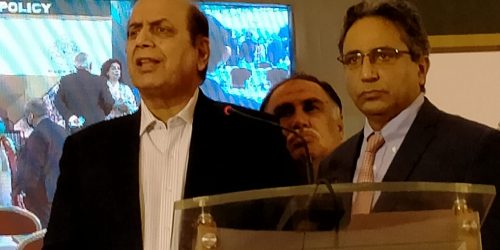Mr. Babar spoke about the global inequalities prevalent among nations in the economic, technological and energy consumption space. He said that technology has tremendously enhanced the production, conversion and usage efficiencies in the energy sector and that it will continue to transform the ways in which energy is produced and utilized. “World is moving away from fossil fuels to clean energy resources and we cannot pursue the opposite direction”, he said; “however, apart from electricity generation, we could also utilize coal for production of chemicals, synthetic diesel and fertilizers”.
Speaking on local energy generation and supply infrastructure, SAPM said that our country needs to commoditize energy supply and open up the sector for private industry; competition and technology upgradation through private participation which will drive the costs down for consumers and facilitate robust economic growth.
SAPM said that we are striving to make our country adopt new technologies more rapidly; for security and affordability of energy, it is important to utilize the technology of coal to gas and coal to liquid conversion. “We need to reform our policy and business structure according to the evolving demands of the time or else we will be left disadvantaged”, he said.
SAPM said that the federal government will support the private sector to adopt new technologies through necessary fiscal and regulatory measures. However, he said, to move forward effectively, industry needs to shun the mindset of obtaining unnecessary protections.
Speaking on the importance of developing consensus for national policy formulation for coal conversion technologies, SAPM said that the federal government would not formulate any national energy policy without comprehensive consultation and participation of all stakeholders, including industry players, regulators and provincial governments. We did the same in case of alternate energy policy and are doing the same for LPG and oil refining policy.






